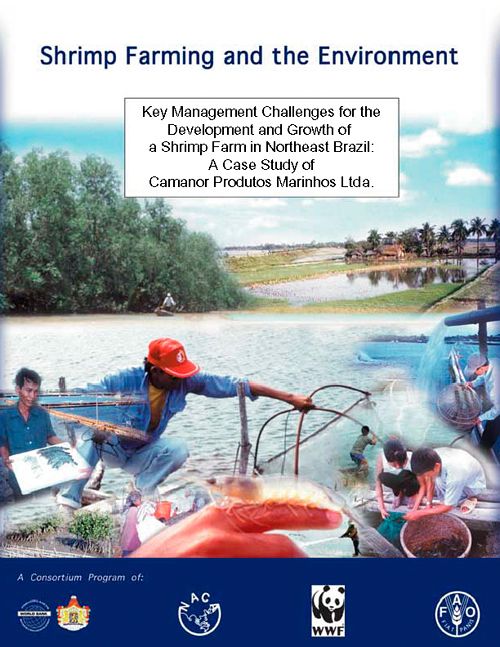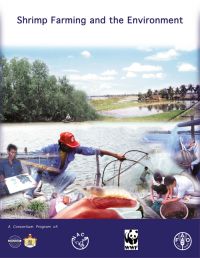Key management challenges for the development and growth of a shrimp farm in northeast Brazil: A case study of Camanor Produtos Marinhos Ltda.
31 May 2005 | Barbara Schwab, Michael Weber and Bernard Lehmann | 2073 Downloads | .pdf | 485.52 KB | Better management practices, Livelihoods, gender and social issues, Shrimp, Environment and Sustainability
This case study discusses the main lessons for management practices learned at the shrimp farm Camanor, in Rio Grande do Norte, Brazil. Since it was founded in 1982, the Camanor farm has yielded data that allow the knowledgeable observer to draw lessons and make insights. The lessons learned should be considered when addressing future development potential and the challenges of the shrimp aquaculture industry. This process is extremely important in Brazil and elsewhere, as new producers are likely to repeat the mistakes of others rather than learn from them unless the lessons learned are documented. This case thus attempts to document the most important lessons by Camanor during the past 18 years. The most important challenges before the shrimp aquaculture industry involve developing better practices and implementing industry wide standards that are more sustainable.
The case study is divided in two main parts: first, From Past to Present: Camanor’s Development, and second, Perspectives for the Future. The first part is based on data available from the farm and on the experience of the owner and manager, Werner Jost. The second part is also based on Camanor data but includes projections of results from implementing certain sustainable management practices.
Camanor, like other shrimp producers in Brazil, is increasing its production rapidly. Besides the current operation, three more farms are under construction, some of which are beginning production. This expansion leads to new challenges in processing, administration, and overall management of the farm. The description and analysis of the past development of Camanor give some idea of the preconditions needed to support the current expansion.
Copyright, all rights reserved.

